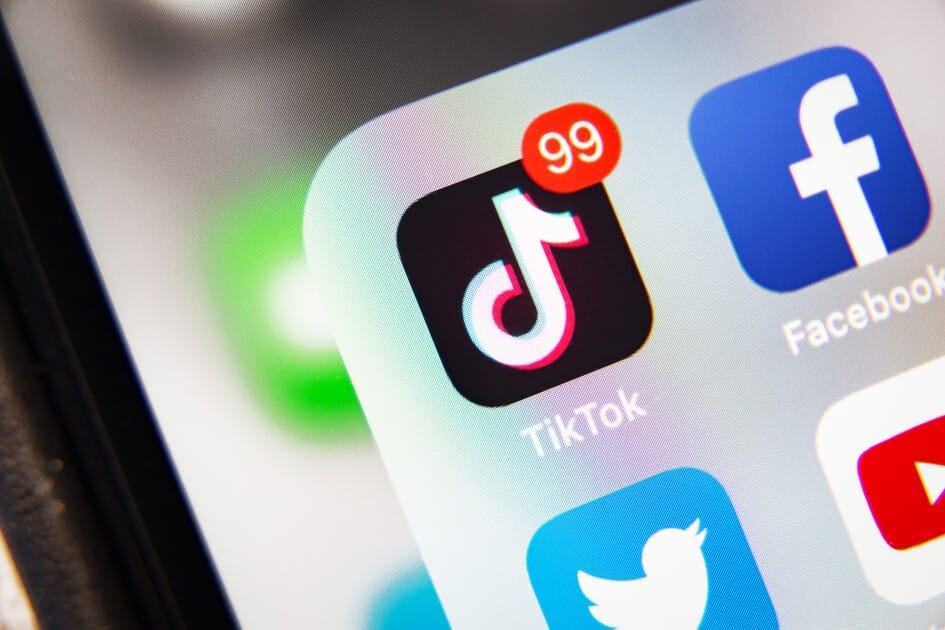Is TikTok actually going to get banned? The threat that the wildly popular social media platform will be banned in the United States has been lurking for more than a year.
Now, though, it seems a ban is on the verge of happening after a ruling by a federal appeals court panel has cleared the way.
The U.S. Court of Appeals for the District of Columbia Circuit on Dec. 6 denied TikTok’s petition to overturn the law that requires TikTok to break ties with its China-based parent company ByteDance Ltd. or be banned by mid-January.
In response, TikTok on Dec. 9 asked the court to pause the enforcement of the law until the U.S. Supreme Court reviews the social media company’s challenge to the statute. It’s unclear whether the Supreme Court will take up TikTok’s appeal.
For many educators, the TikTok ban would be welcome news. They’re weary of a platform they believe has hurt young people’s mental health, catered to shorter attention spans at the expense of deep thinking, distracted students from class work, and spread viral challenges urging teens to do dangerous or destructive things.
Other educators, however, would be sad to see it go. The app has helped some educators connect with their students—and even serves as a go-to professional development resource, particularly for younger and preservice teachers.
Here’s a brief update of where things stand in the groundbreaking lawsuit, and what it means for schools, with plenty of links to EdWeek’s coverage.
Why U.S. lawmakers banned TikTok
The law, signed by President Joe Biden in April, was born out of national security and privacy concerns.
TikTok is a wholly owned subsidiary of Chinese technology company ByteDance Ltd. Lawmakers contended that China’s national security laws give its government the right to demand access to the data of TikTok’s U.S. users, including for intelligence-gathering purposes.
TikTok officials have consistently rejected the argument that the platform could be used to aid the Chinese government. TikTok has never shared U.S. user information with Chinese authorities and wouldn’t do so if asked, company officials say.
The U.S. government also has not supplied evidence that TikTok provided data on U.S. users to the Chinese government, the Associated Press reported.
TikTok argues that the law infringes on Americans’ freedom of speech.
“The TikTok ban, unless stopped, will silence the voices of over 170 million Americans here in the U.S. and around the world on January 19th, 2025,” the company said in a statement in response to the circuit court’s decision.
The court ruled, however, that the law doesn’t violate the First Amendment because the government is not looking to “suppress content or require a certain mix of content” on TikTok.
Is TikTok addictive for children? Other legal challenges loom
TikTok is facing other legal challenges separate from the attempt to ban it.
At least 13 states and the District of Columbia have filed a series of lawsuits claiming that TikTok is intentionally designed to be addictive to kids. And those addictive features, the lawsuits say, are harming kids’ mental health. TikTok says such claims are inaccurate and misleading.
The U.S. Department of Justice in August also sued the company for violating the federal Children’s Online Privacy Protection Act, EdWeek Market Brief reported. The department alleges that the platform knowingly created accounts for— and collects data from—children without first notifying parents and obtaining consent, and that the company failed to delete accounts and information when requested. TikTok disputes the allegations.
Educators are skeptical that banning TikTok will matter in their classrooms
Even if the ban goes through, some educators are not optimistic that it will solve their social media woes. Students will just find another platform to use constantly, they say.
Young people are also using TikTok’s competitors: Instagram, YouTube, Snapchat, and other alternatives.
Many schools have put restrictions on when students can use their phones during the day to help ease the distractions they cause. They’re also teaching students digital citizenship, social-emotional skills about how to self-regulate and curb their own phone usage, and modeling appropriate use.
2024-12-11 22:30:57
Source link

